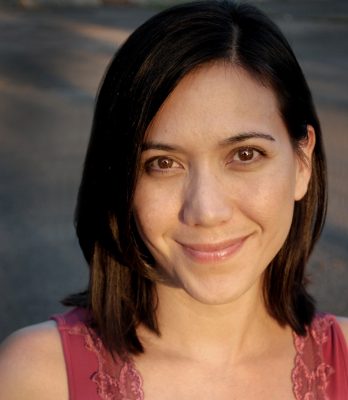Breastfeeding Exclusive September 2017 - Aunchalee Palmquist Joins CGBI as Assistant Professor

New CGBI faculty member Dr. Aunchalee Palmquist.
We are pleased to welcome Dr. Aunchalee Palmquist to the CGBI team! Dr. Palmquist has joined us as an Assistant Professor in the Department of Maternal and Child Health. She is a medical anthropologist and an International Board Certified Lactation Consultant (IBCLC). Dr. Palmquist has served as an International Lactation Consultants Association (ILCA) liaison to the United Nations advocating for global breastfeeding policy, and will be joining Kathy Parry in representing CGBI in the WHO/UNICEF Global Breastfeeding Collective.
Dr. Palmquist joins us from the Department of Sociology and Anthropology at Elon University, where she was also Director of the Program for Ethnograhpic Research and Community Studies (PERCS). Dr. Palmquist will utilize her expertise in community-based participatory research, ethnographic and qualitative methods, and mixed-methods research to understand and address breastfeeding and health disparities. She recently completed a three-year, multi-sited ethnographic study of human milk sharing in the U.S., which was funded by the Wenner-Gren Foundation. Dr. Palmquist is considered an expert on this topic and has spoken to audiences of academics and health professionals about the evolutionary, cultural, and public health dimensions of sharing human milk.
At CGBI Dr. Palmquist plans to expand her research agenda to address human milk banking, maternal-child perinatal health disparities, and infant and young child feeding in emergencies (IYCF-E). Dr. Palmquist has executed a rapid ethnographic assessment of IYCF-E in Greece and France along with Australian colleague, Dr. Karleen Gribble to identify critical gaps between global IYCF-E policy and on-the-ground implementation in complex humanitarian settings. Dr. Palmquist is currently working to establish a research program at CGBI centered on IYCF-E research, practice, and health communications.

Dr. Aunchalee Palmquist lecturing on Infant and Young Child Feeding in Emergencies at the recent Carolina BEBES event.
In light of recent disasters and ongoing international challenges to global health, Dr. Palmquist was hosted by the student group Carolina BEBES to give an open lecture about her work in IYCF-E. Students, faculty and staff came out to hear Dr. Palmquist describe the history and context of safe infant and young child feeding policies in disasters and emergency situations. She has worked to raise awareness of infant and young child feeding in emergencies (IYCF-E) guidelines. Important takeaways from this lecture are not only the need to educate volunteers in the field, but also the need to educate those wanting to donate items to families in need on best practices for safe infant and young child feeding.
To learn more about IYCF-E visit the Emergency Nutrition Network and view the 2017 updated operations guidance for IYCF-E. UNICEF has a self-directed set of online lessons to learn about IYCF-E.
The International Lactation Consultant Association maintains a position paper on breastfeeding and emergencies.
American Academy of Pediatrics maintains a two-page handout, “Infant Feeding in Disasters and Emergencies: Breastfeeding and Other Options” – complete with an IYCF-E decision tree.
The United States Breastfeeding Committee (USBC) also has a breastfeeding in emergencies resource webpage.
